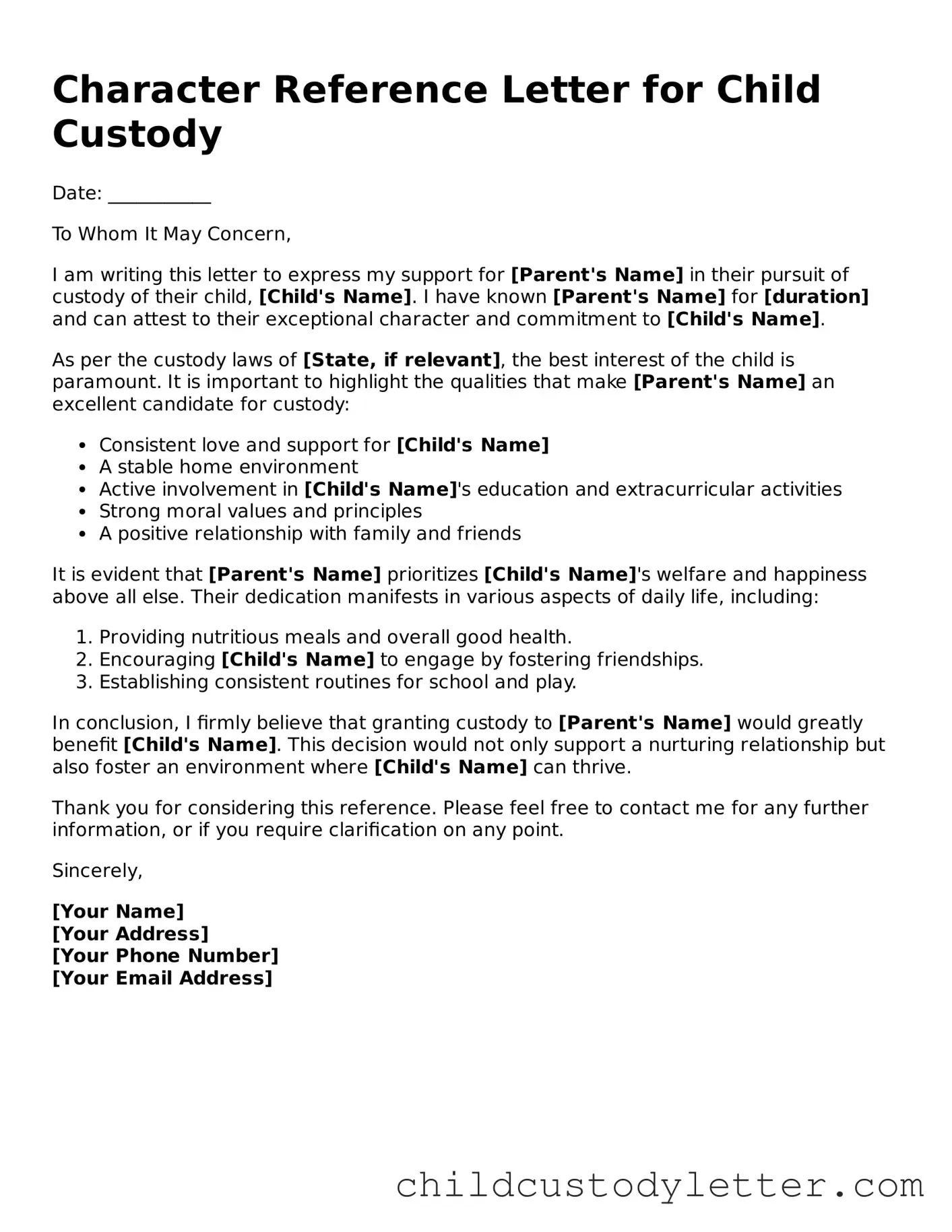Things You Should Know About Character Reference Letter for Child Custody
What is a Character Reference Letter for Child Custody?
A Character Reference Letter for Child Custody is a written statement that attests to a person’s character, parenting abilities, and suitability for custody. It is often used in court proceedings to support one parent’s case in a custody dispute. This letter can provide insight into the parent’s behavior, relationships, and overall fitness as a caregiver.
Who can write a Character Reference Letter?
Anyone who knows the parent well and can speak to their character can write this letter. Common writers include friends, family members, teachers, or coworkers. It’s important that the writer is credible and can provide specific examples of their relationship with the parent and observations of their parenting style.
What should be included in the letter?
The letter should include the writer’s relationship to the parent, specific examples of the parent’s strengths and parenting skills, and any relevant personal anecdotes. It should also express the writer’s belief in the parent’s ability to provide a safe and nurturing environment for the child. Clarity and honesty are crucial; avoid exaggeration or vague statements.
How does the letter impact the custody decision?
The letter can significantly influence a judge’s decision by providing a personal perspective on the parent’s character and parenting abilities. It can help paint a fuller picture of the parent’s life and their commitment to their child. However, it is just one piece of evidence among many that the court will consider.
Is there a specific format for the letter?
While there is no strict format, the letter should be typed and professionally presented. It should include the date, the writer’s contact information, and a formal greeting. The content should be clear and concise, ending with a closing statement and the writer’s signature. Following these guidelines can enhance the letter’s impact.
